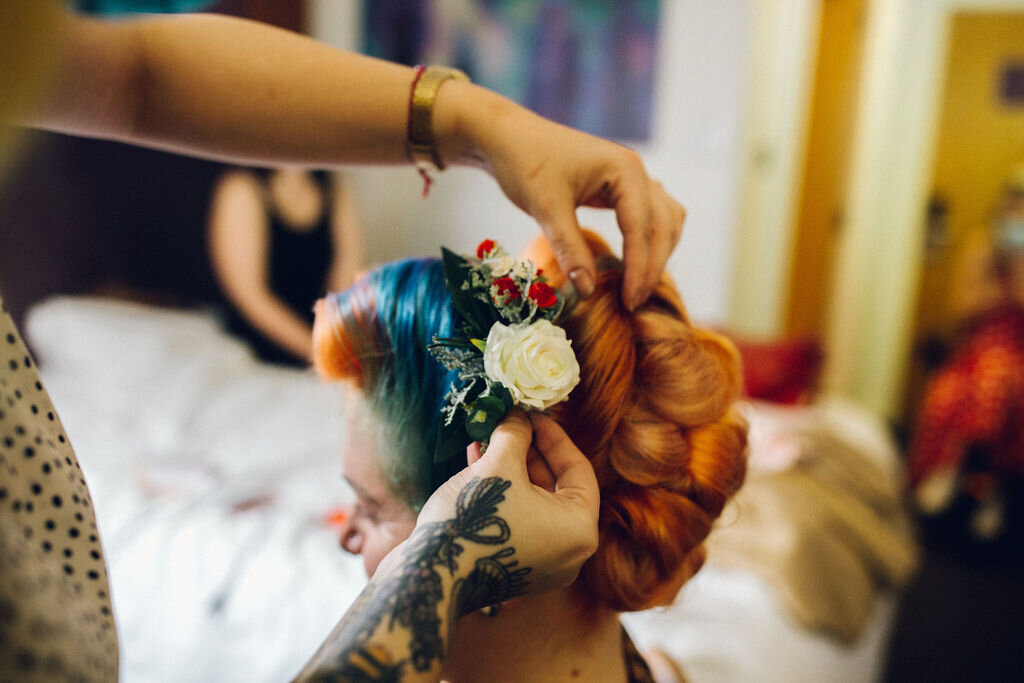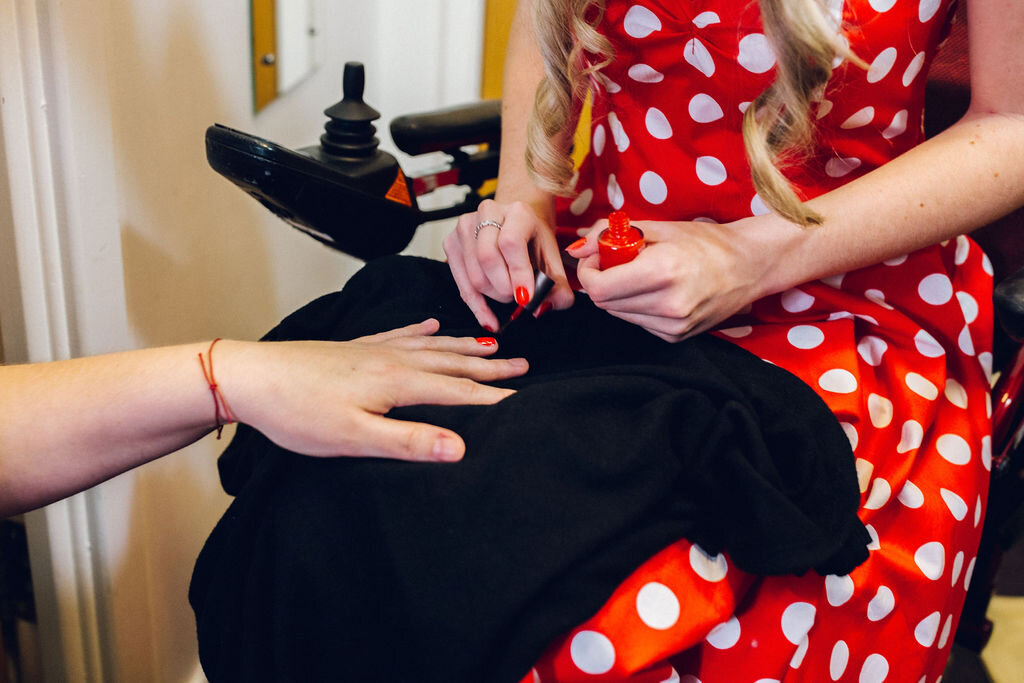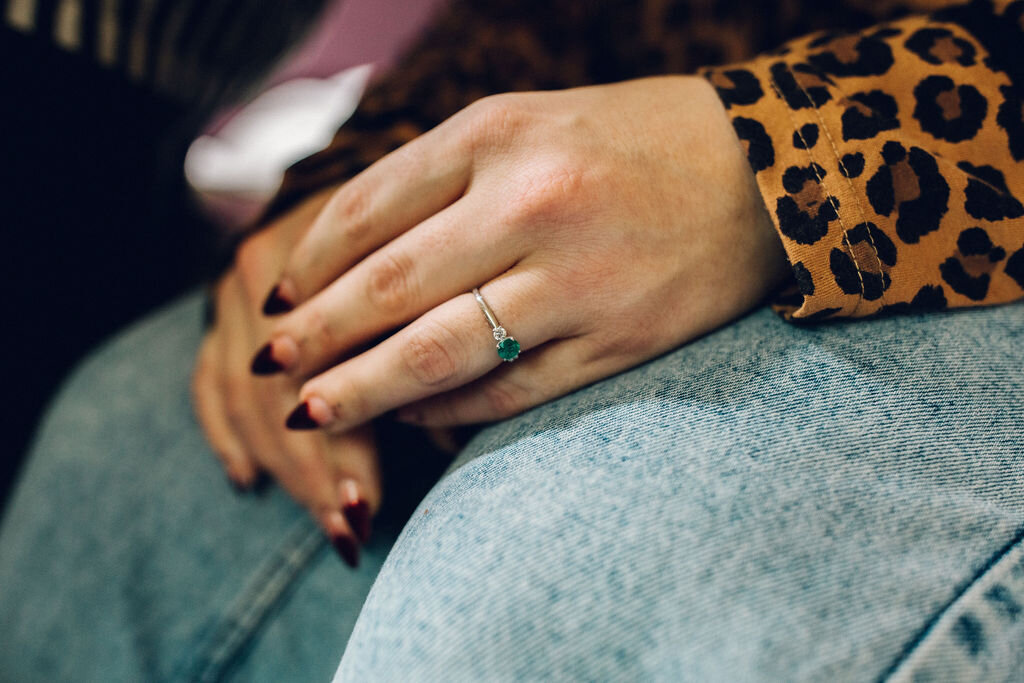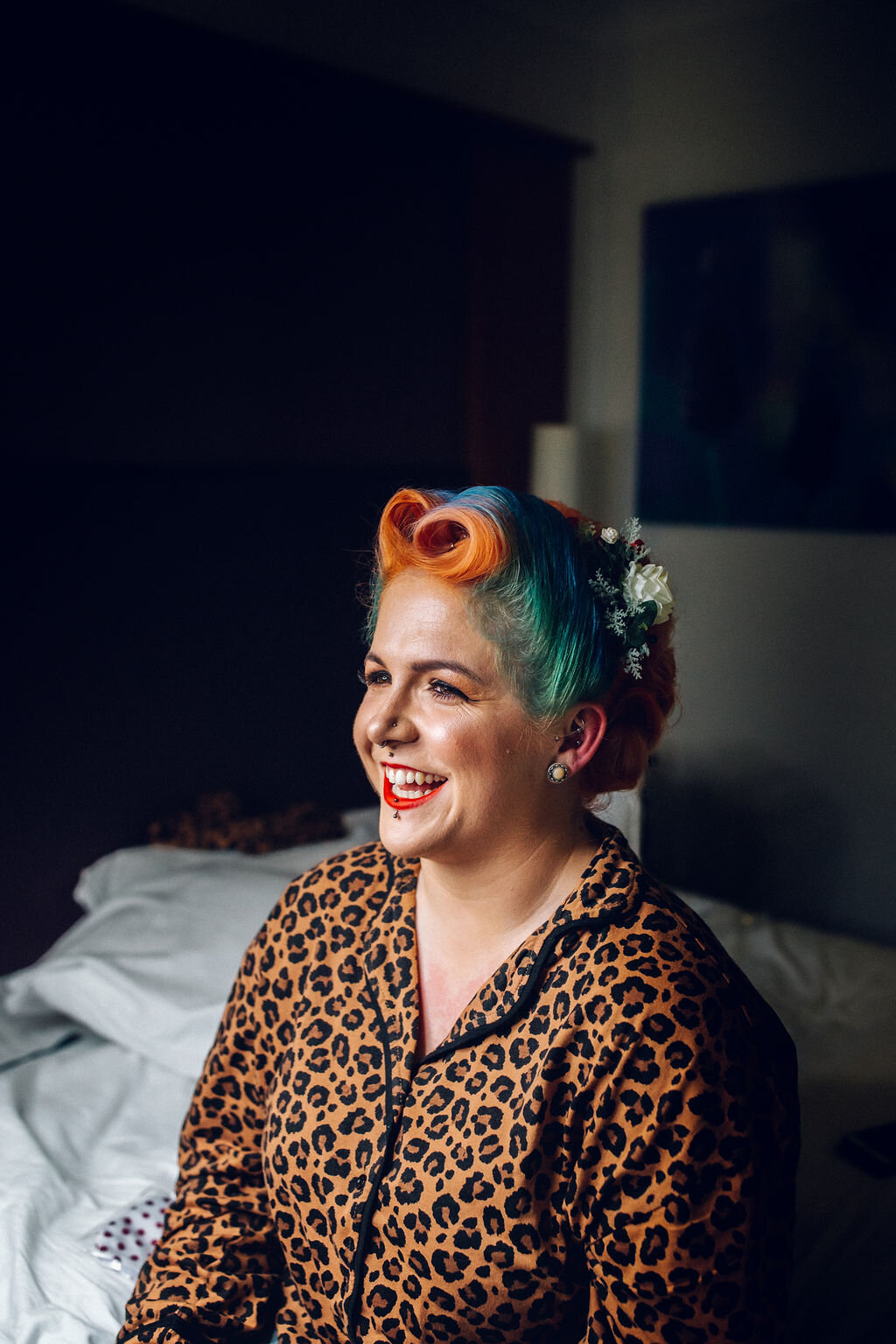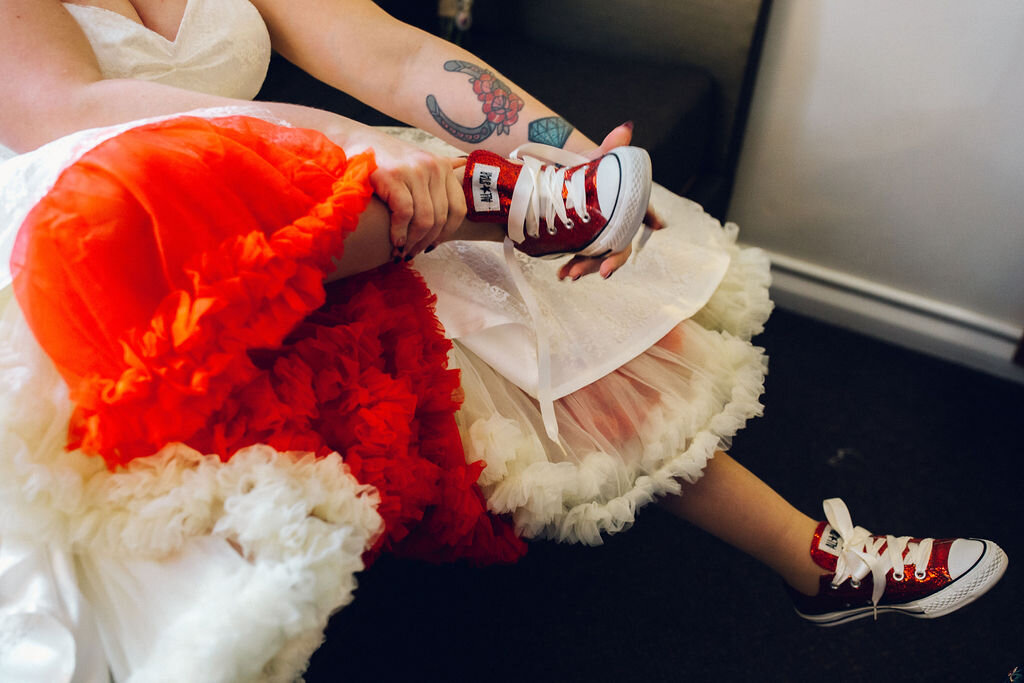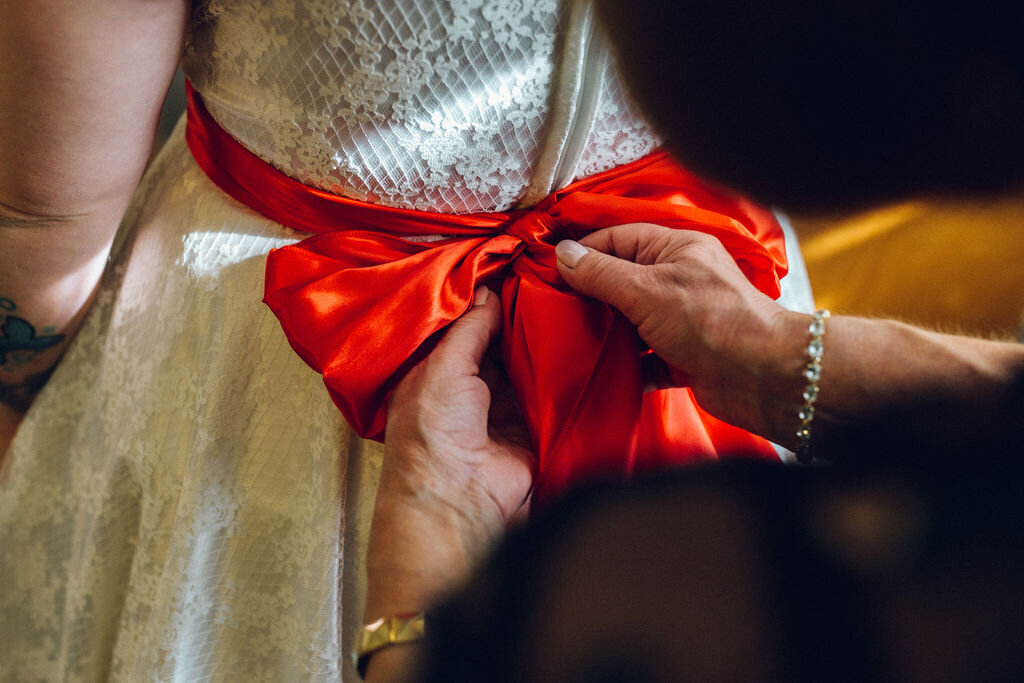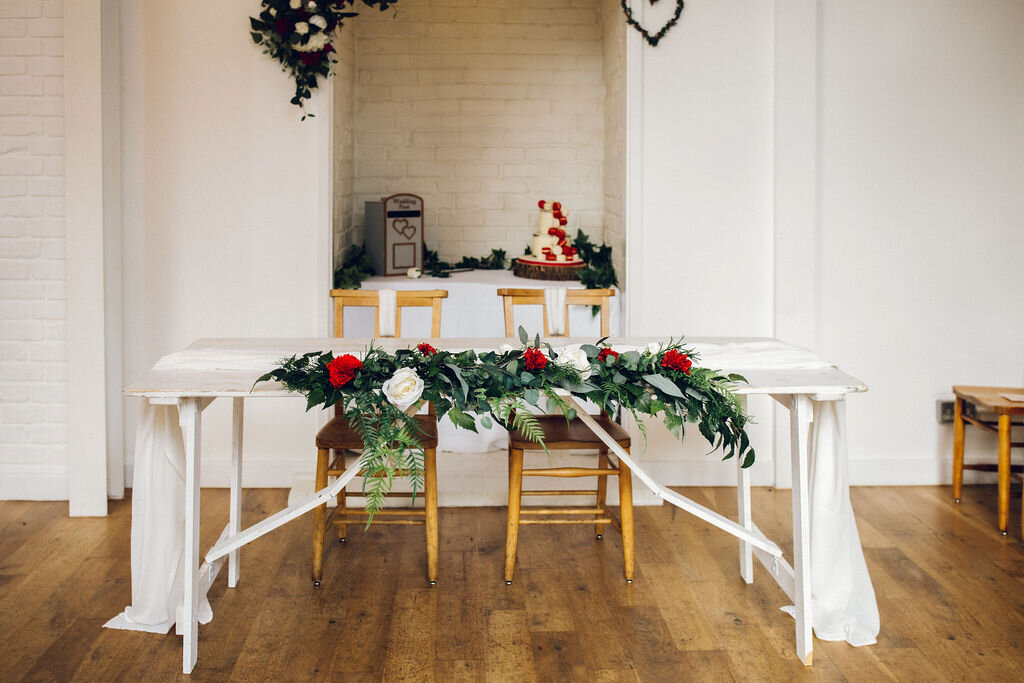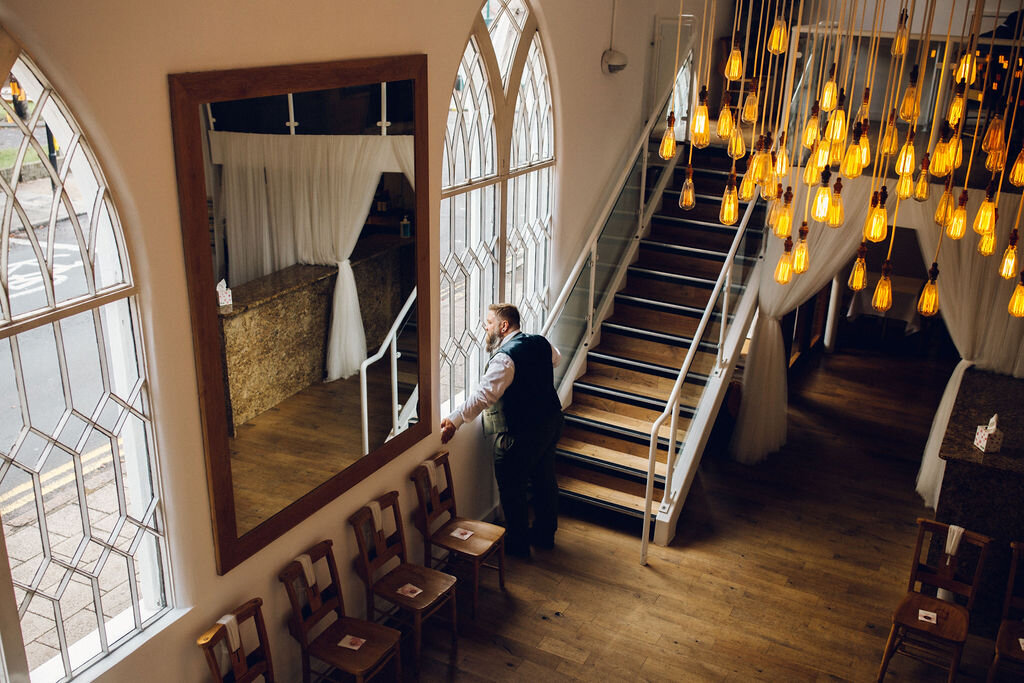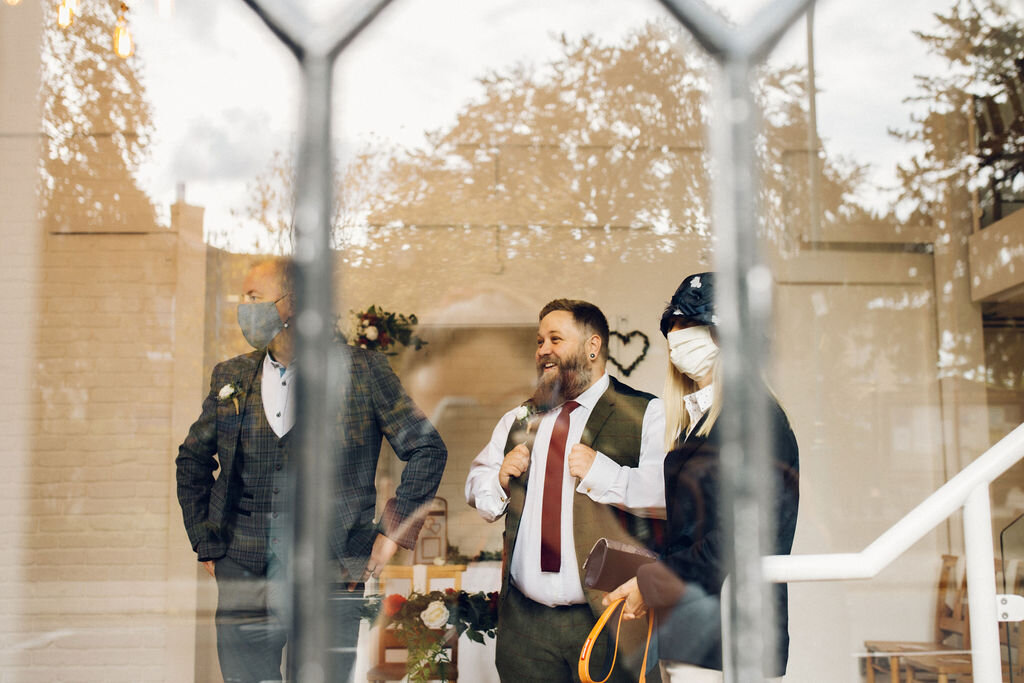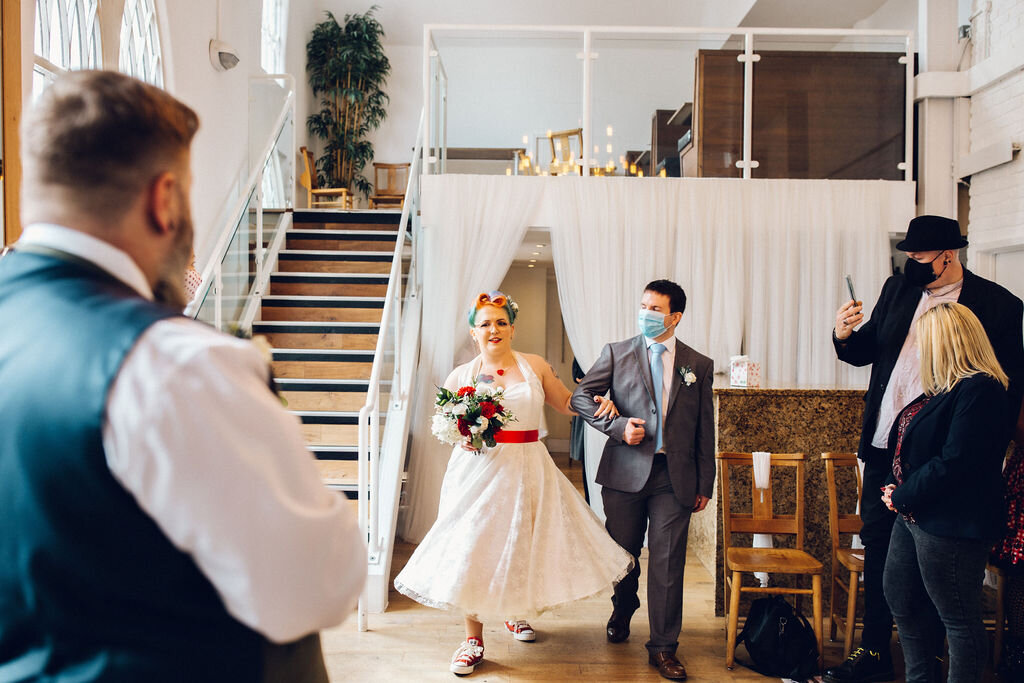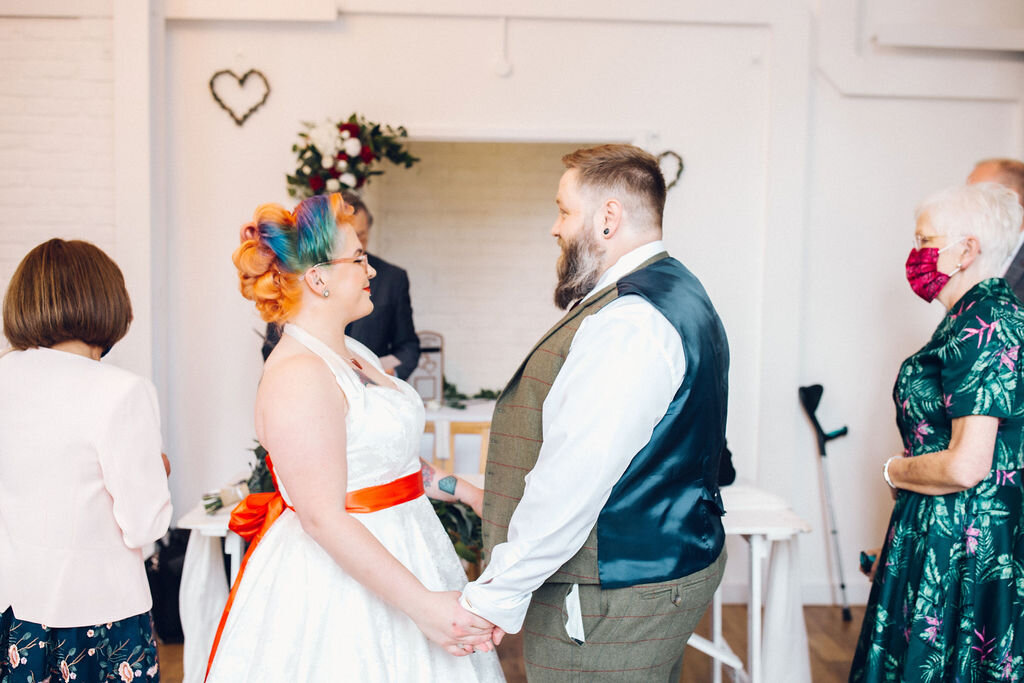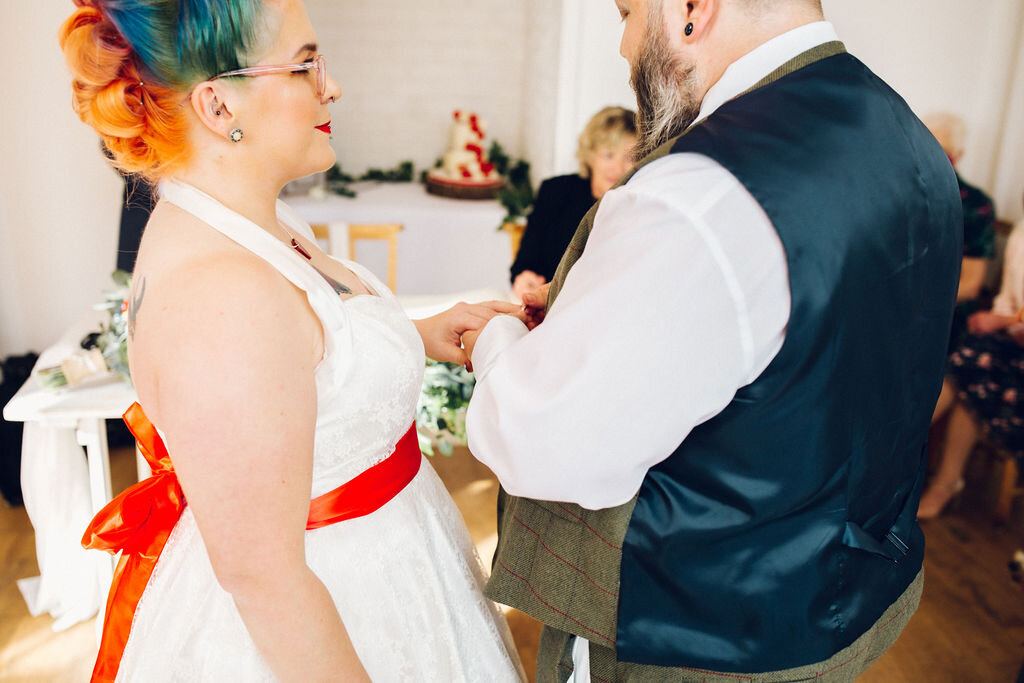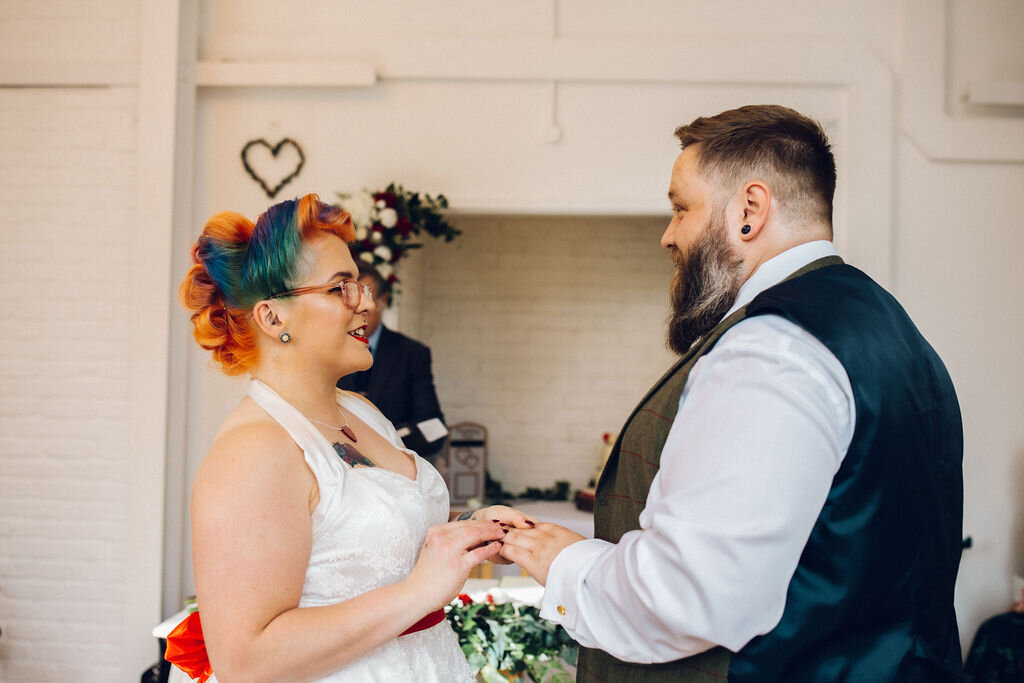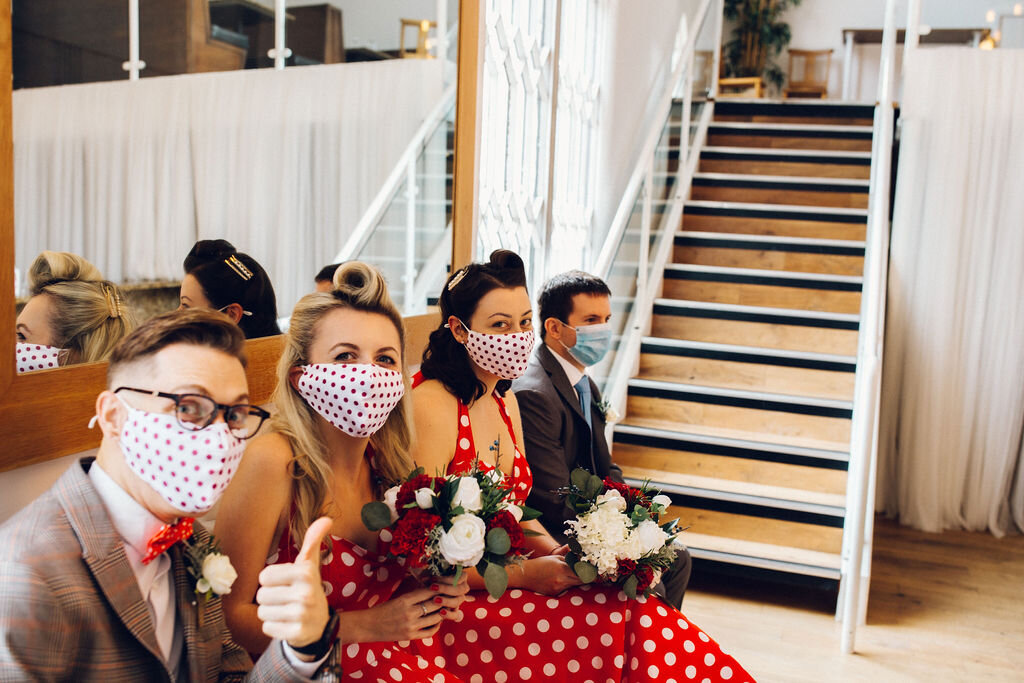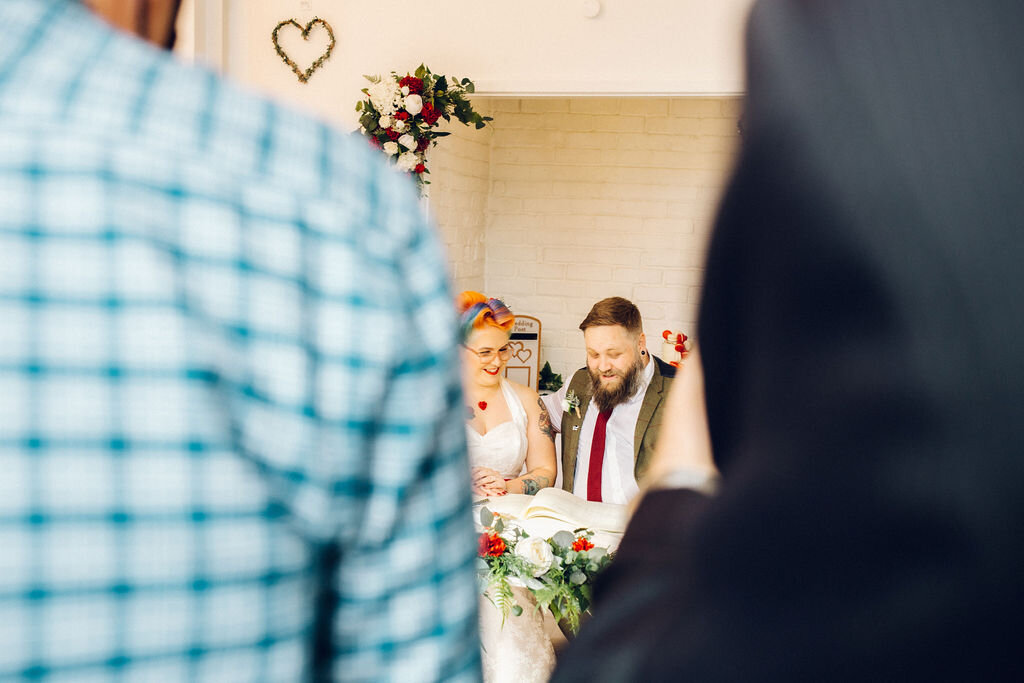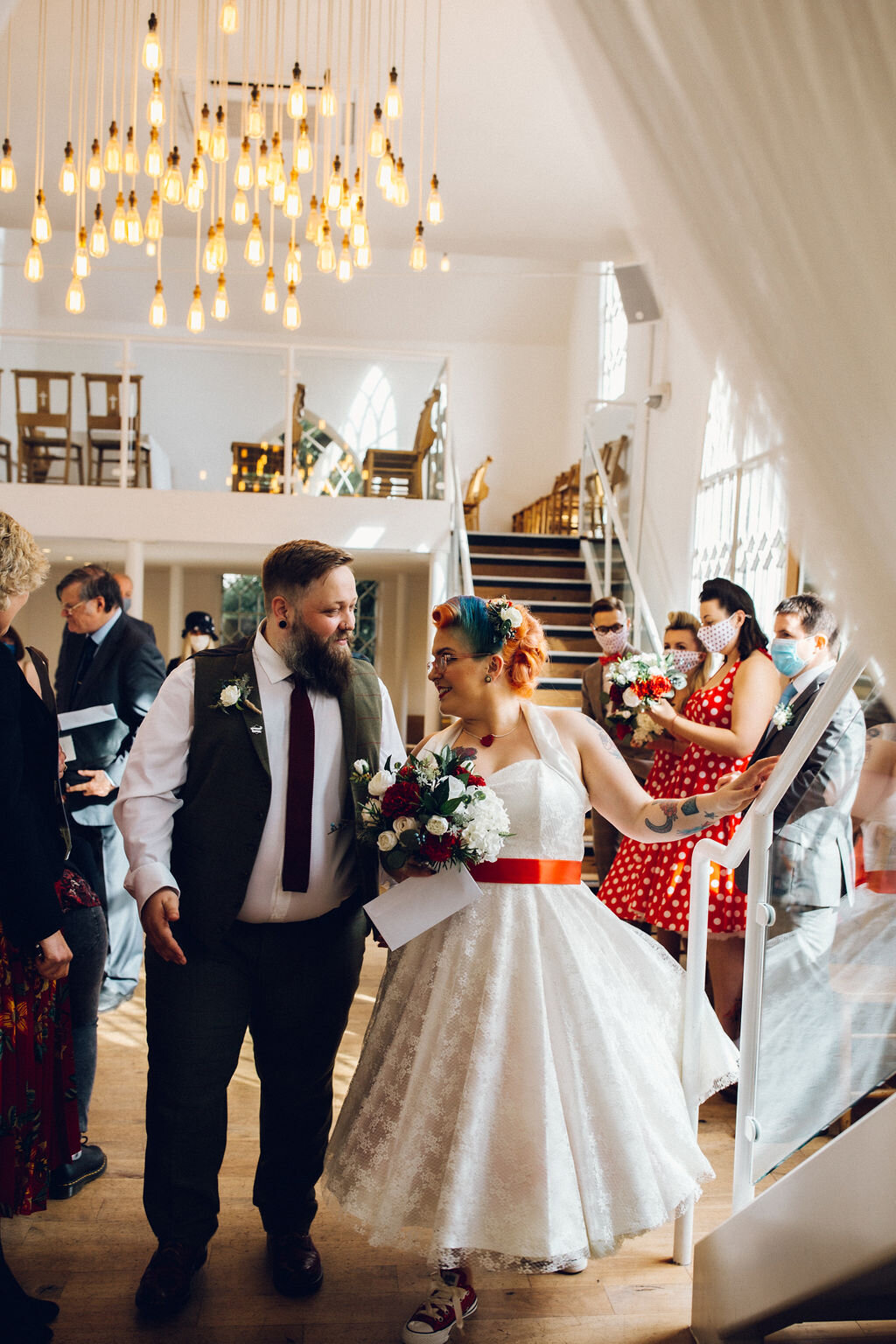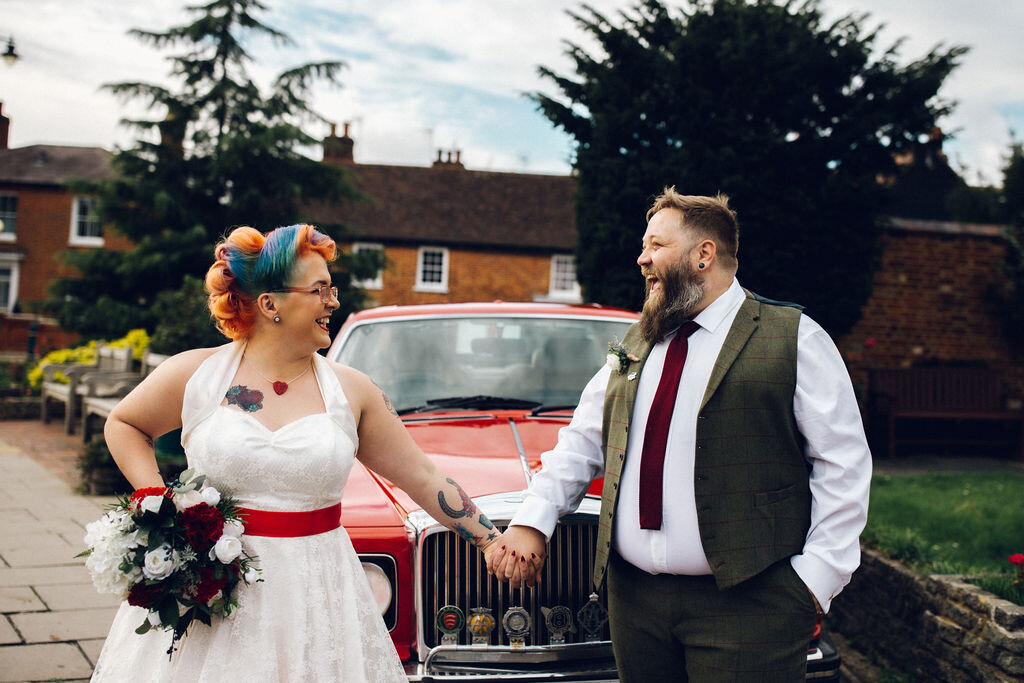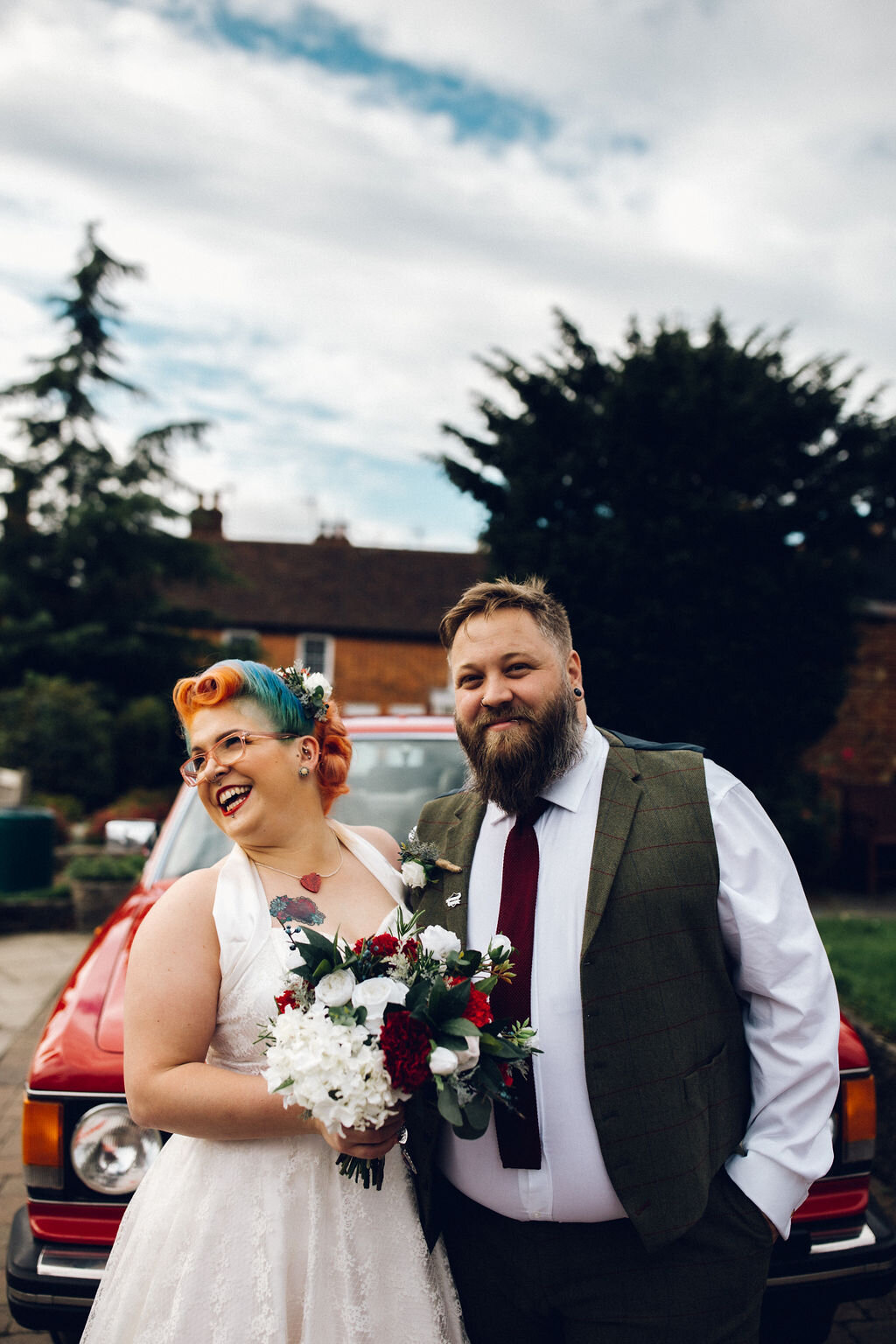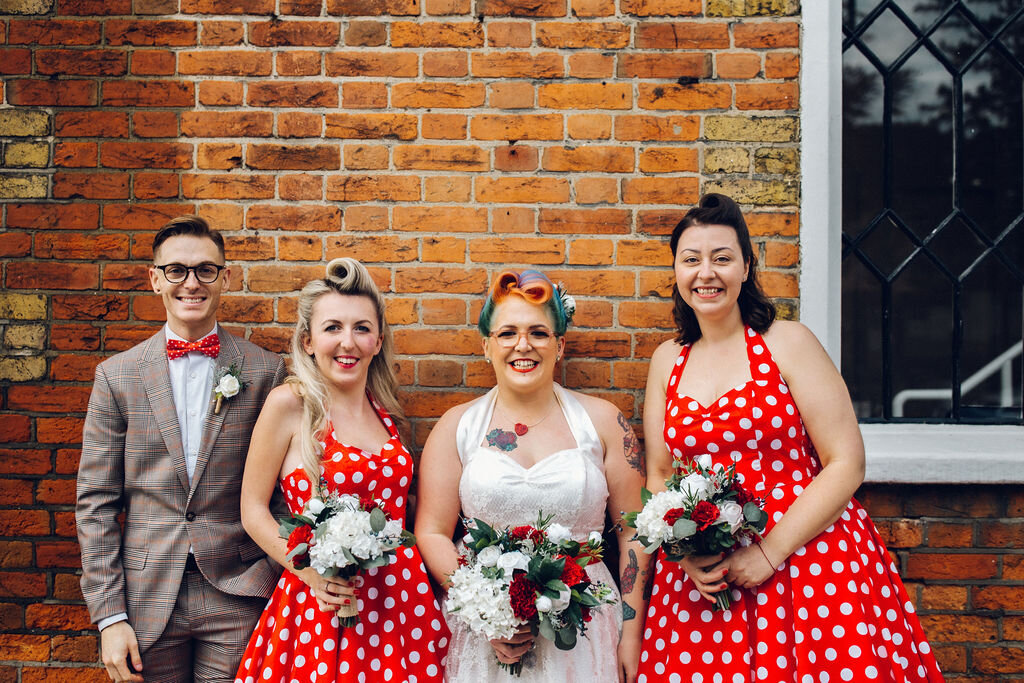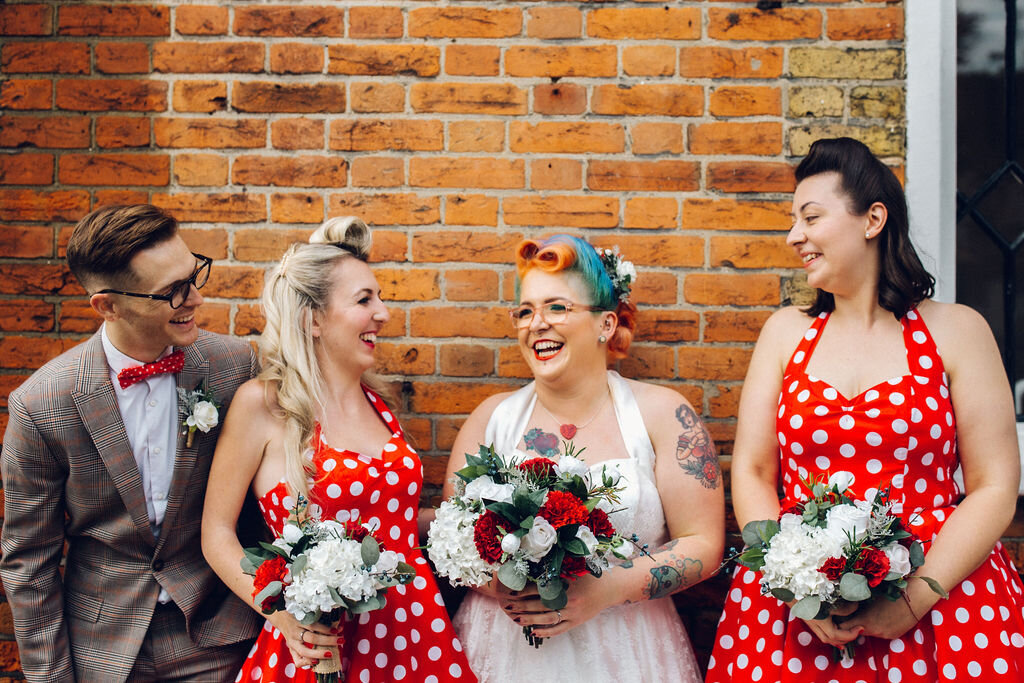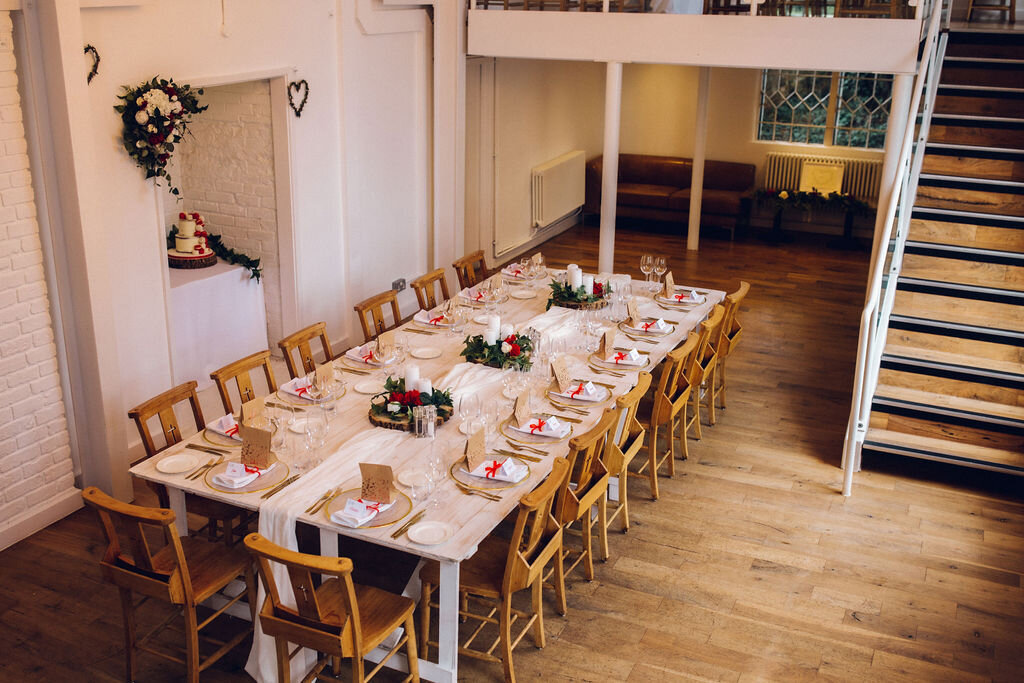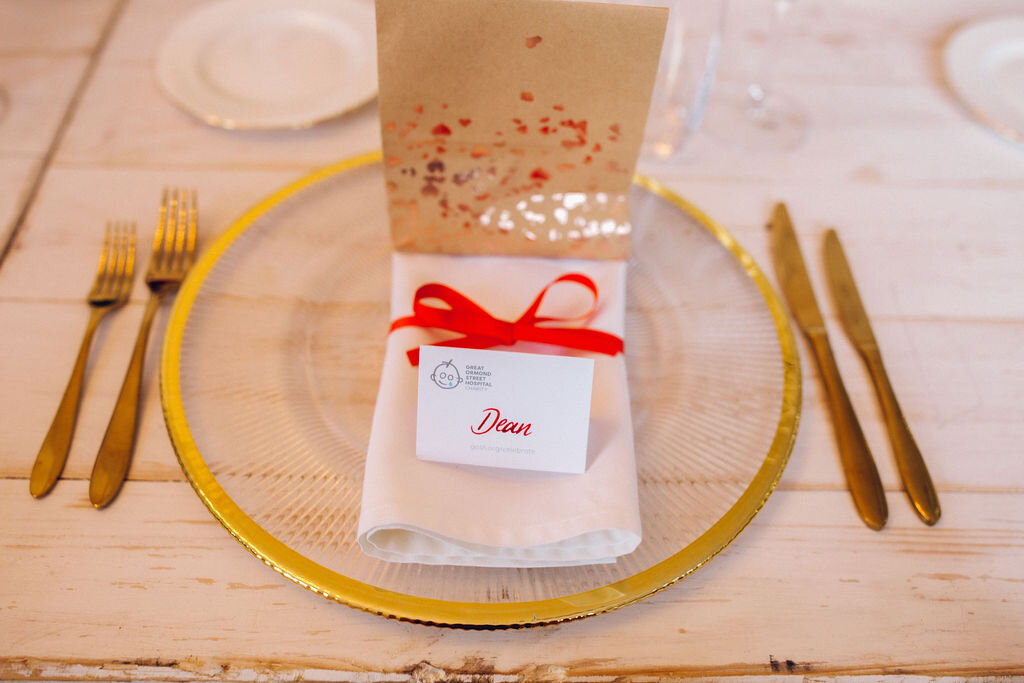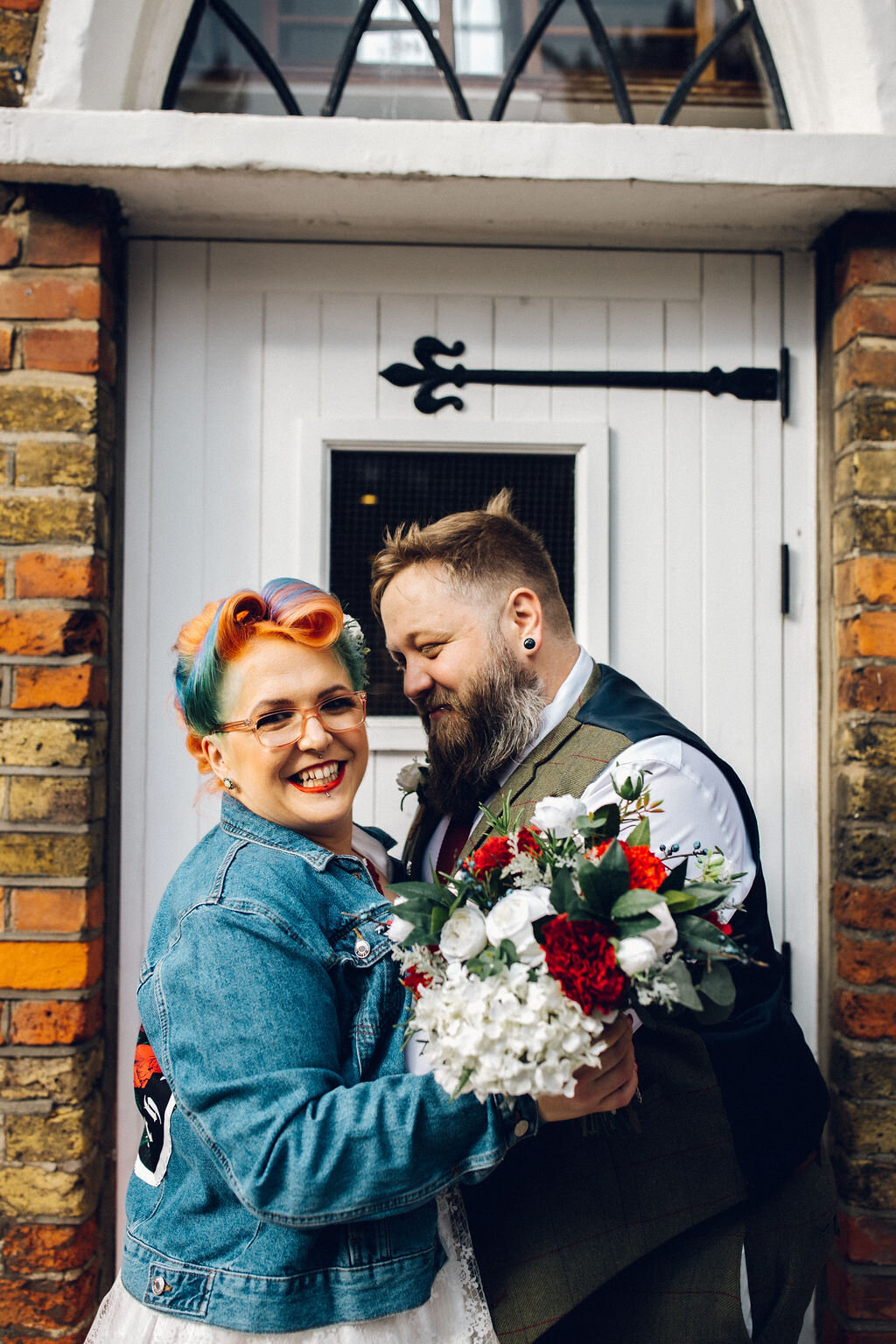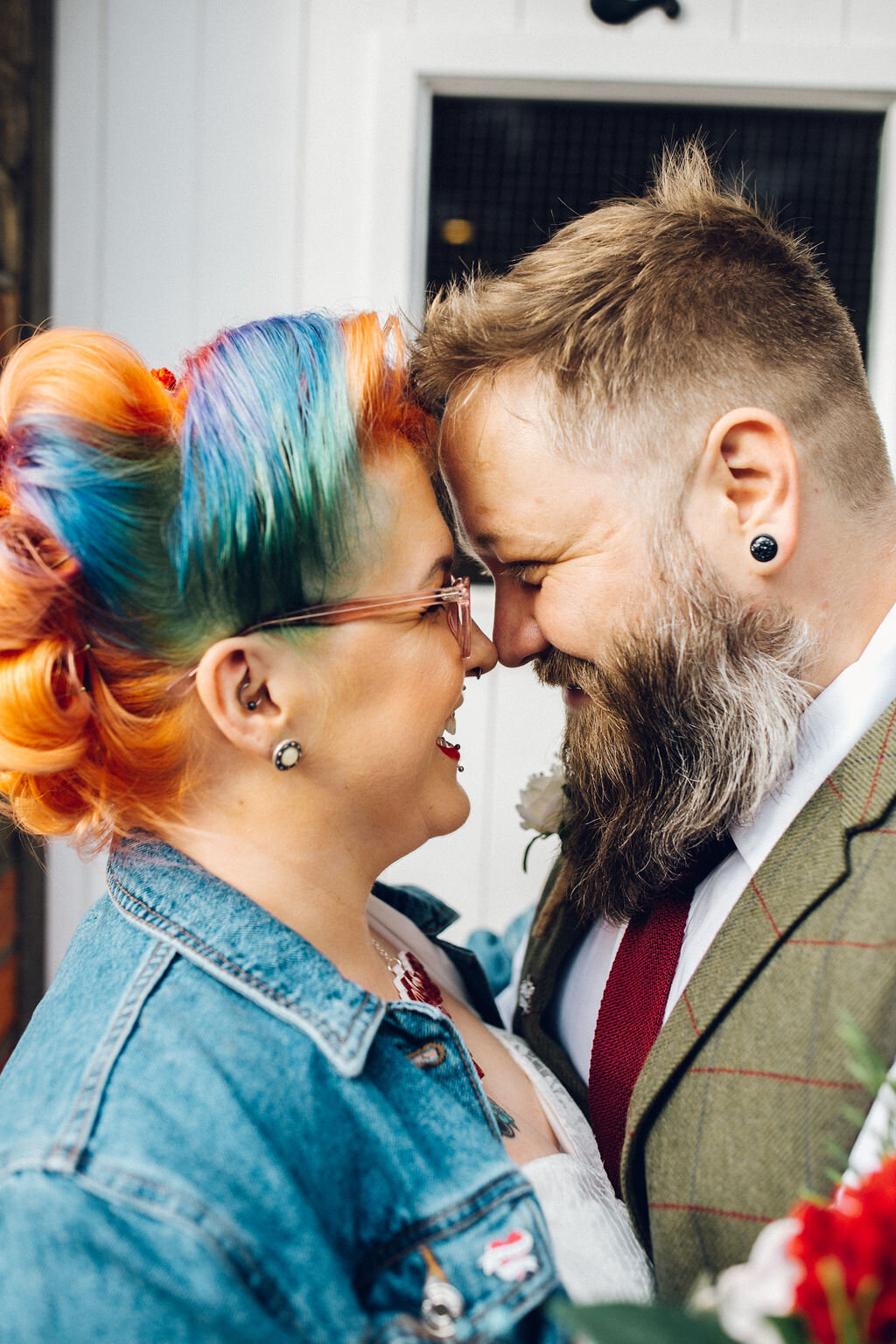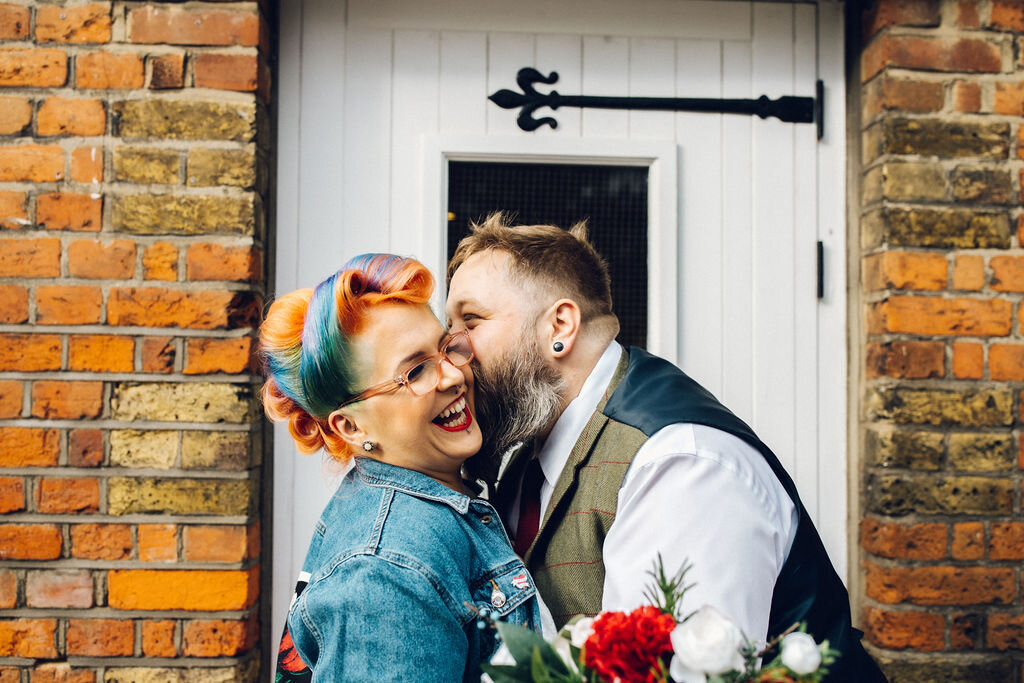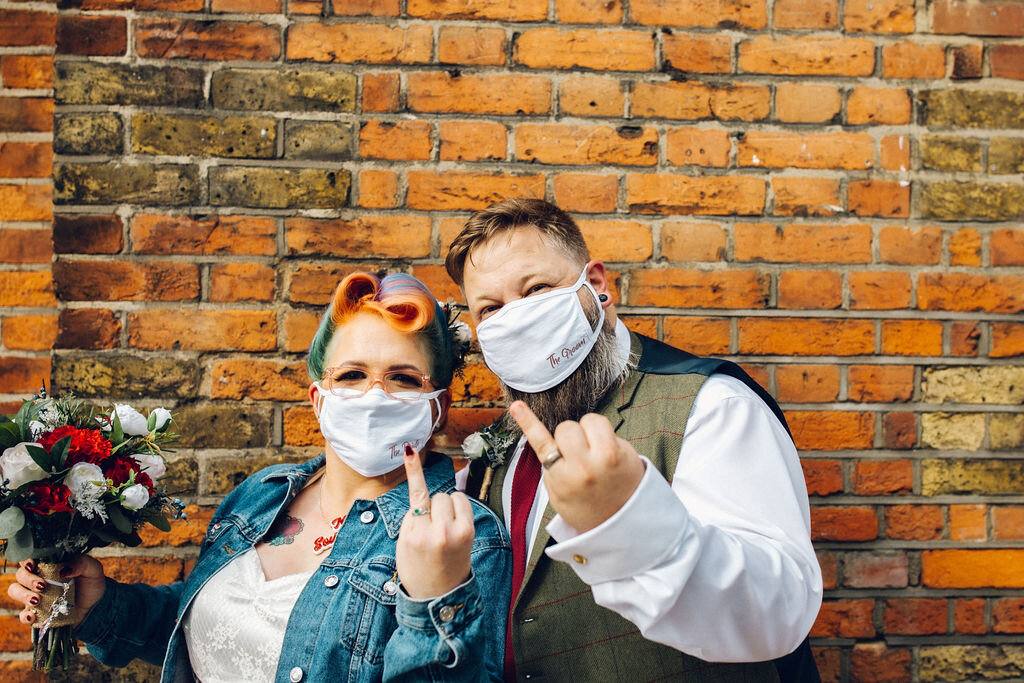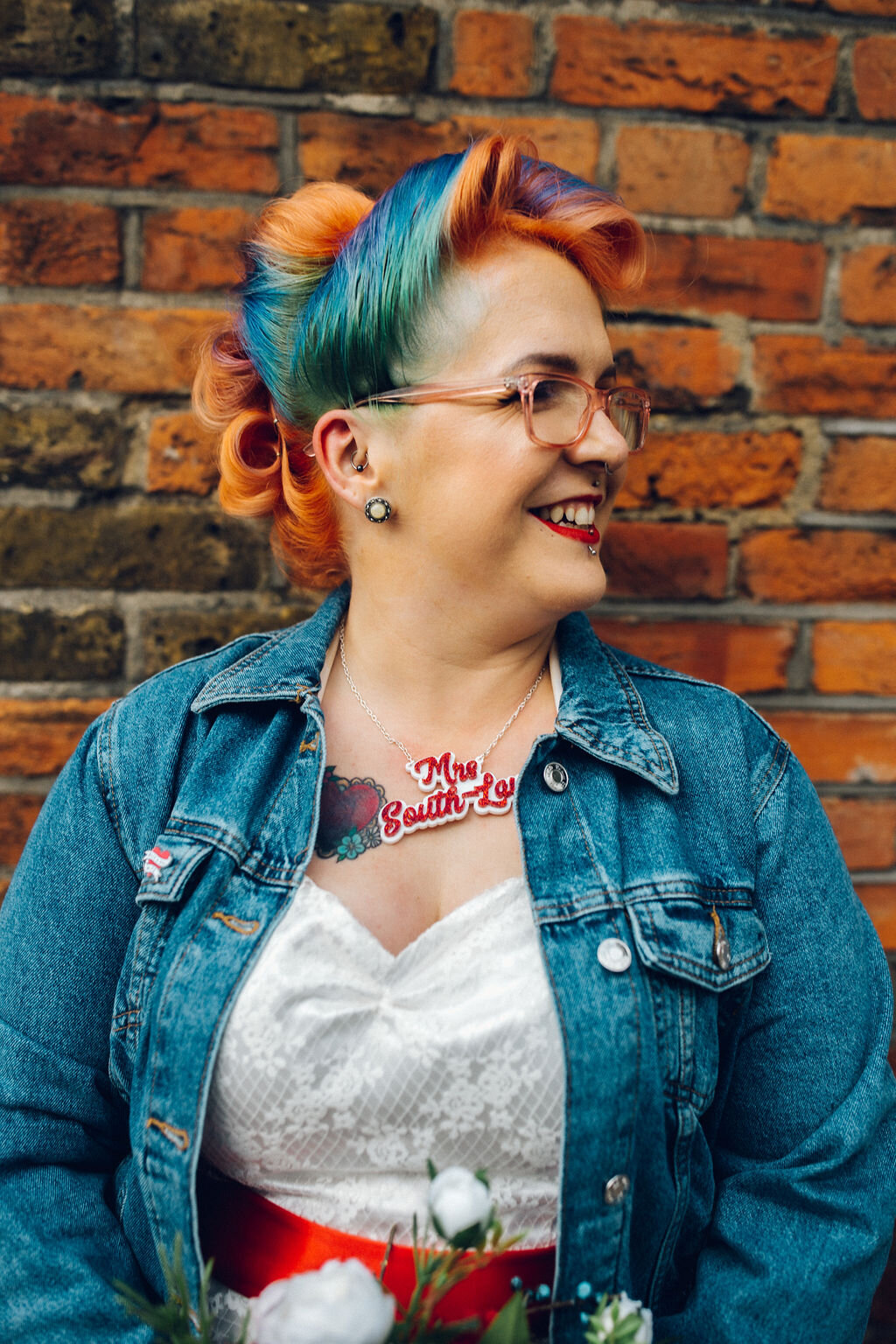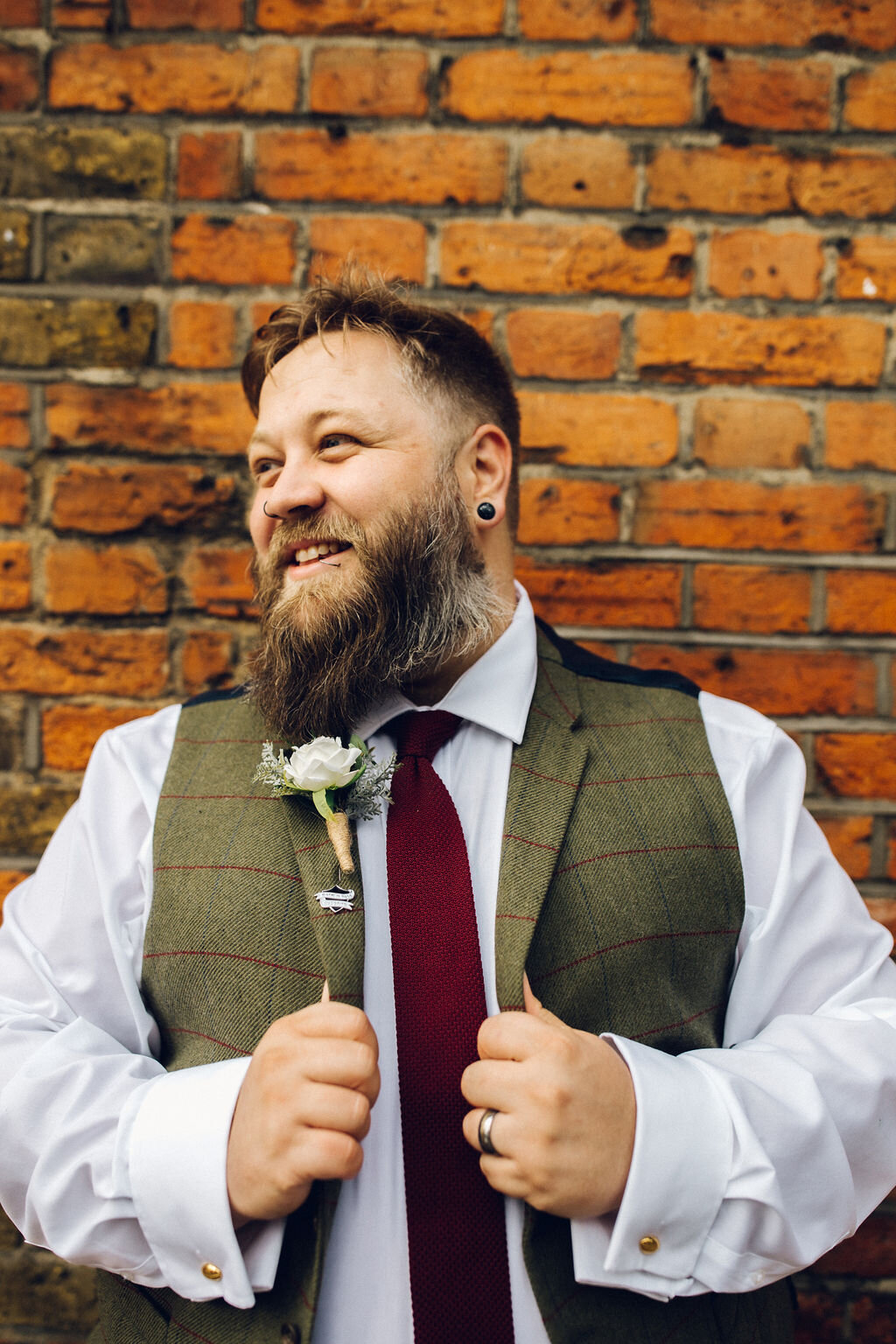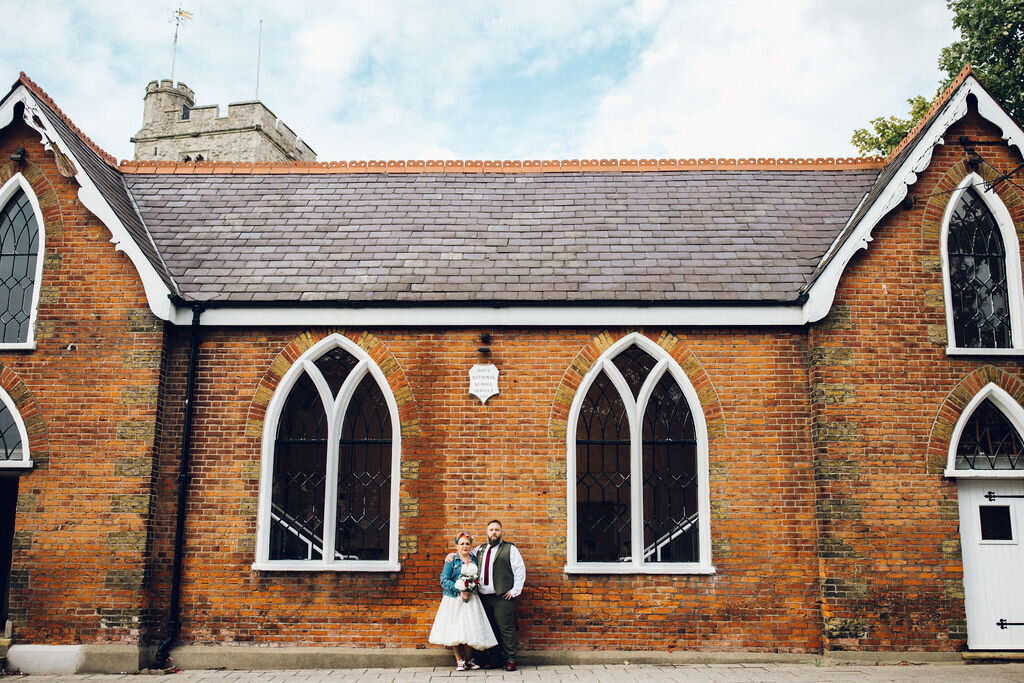Planning a wedding as a disabled person
Planning a wedding as a disabled person
Today I’m handing the blog over to one of my lovely 2020 brides Natalie who has cerebral Palsy to talk about planning a wedding as a disabled person.
So before I got engaged, I never thought there would actually be a need (or even a want!) for a piece like this. But drawing on my experiences of planning our wedding and Chloe’s kindness in giving me this platform (thank you!!), here we are!
The biggest problem we came across was really quite early on in the planning, just when we were trying to find a venue. When we were thinking about the venue, we knew that we would have guests, bridal party members, and myself with impairments that would need to be considered in the planning. Trying to find a venue’s access information was a pretty painful experience, if I’m to be really honest. Especially when I ring up to ask, and they say they have a ramp so my elderly family members will be fine…. Or telling me they are accessible, going to view the venue, and they really are not accessible AT ALL. We walked away from a few viewings for this very reason! My favourite though, has to be the venue where the bride got ready on site, but the walk to the ceremony space was about a 10 minute trek over grass and gravel paths - i’d have needed a nap before the ceremony!
Our venue was really honest from the start, they don’t have level access, but there is a second entrance with a lower step, and they sent me photos of it. I spoke to all my guests who this would impact, and they said that was fine. Also, the venue has a mezzanine level, and usually evening food would be served from upstairs. After talking to the venue, they said it was possible to do the whole thing on the one level, which was a really positive thing to hear (turns out we didn’t need to worry about the evening, COVID had other plans!! But that’s a different story haha!). Another venue we visited told us they had level access, which they did, but when we said our anticipated party size, they said they could only put us in the smaller room, which was upstairs, and there was no way we were able to have the accessible room with our size of party.
I think venues should include their access information on their website. It’s not an arduous thing to do, but really helps set the scene for disabled people, so they know what to expect (and could prevent a ton of wasted viewings!). As well as that, just having an awareness of disability is really important. On our wedding day, when we were having photos done outside, there were some seats brought out, for those of us (myself included!) who cannot stand for a long time. Having that awareness that disability doesn’t necessarily equals wheelchair user (or elderly!) really does go a long way.
Another part of the whole planning process was the dress shopping. I visited one bridal shop (mainly for my mum! But also trying on poofy dresses did sound kinda fun!) The first dress I tried, the shop assistant said that she would go and get me some heels to complete the look. When I explained that I will be wearing converse for the whole day, she was confused and said she would get some as I will be wearing them for the ceremony. Having to go on to explain that I physically CANNOT wear heels due to a disability is really quite exhausting, I wasn’t saying no just to be difficult. Couples come in all shapes and sizes, but we also have different abilities too, and these shouldn’t be questioned or assumed.
I think I’m really fortunate that I can be quite outspoken when it comes to my disability, so when we first met with Chloe, I remember saying that I might need breaks between photos, and that I wasn’t fussed about any photos of me walking, as that’s something I’m quite self conscious of. Although having said that, one of my favourite photos from the day is John and I walking out of the ceremony! I think, similar to the other suppliers, it’s really important for photographers to capture their clients' access requirements to make them feel as comfortable as possible on the day. A simple “Do you have any access requirements I need to be aware of” is such a good opener to have the discussion in a really easy way.
As I said at the start, this is not a piece I ever thought I would need to write. I think this shows the onus on wedding suppliers to capture the access information, and not rely on your couples to tell you. If someone has a recent diagnosis for example, talking about their disability may be quite hard, so if you, as a supplier, have an open attitude, this will make opening up about what they need an easier conversation to have. Access requirements are not a one size fits all, what works for one person, may not work for another, which is why these conversations are really important to have, for both the supplier AND the disabled person.
And to all my fellow disabled brides and grooms. Don’t be afraid to speak out!!!!!! If this stuff is spoken about more, it becomes normalised, and bad experiences should become less and less. If you have a bad experience, definitely don’t be afraid to speak out, call out the supplier and help them see what they can do to improve their offer to other disabled people.
Thank you so much for sharing your experiences Natalie, if any other couples would like to speak about aspects of their planning please pop me an email!
You can find out more information on Cerebal Palsy here
Sign the petition to ‘stamp out’ healthcare inequality and conduct a review into the care of adults with CP here
Adult CP Hub will be very grateful for any donations here

